Josh Chaplinsky started it. On the Unprintable podcast, the accusations flew: Cath never likes anything experimental.
Well, clearly Josh knows nothing about what I used to do to my teddy bears when I was small. Or the lost University years. But I’m never one to take an insult to my adventurous side lying down.
Okay, Chaplinsky, I thought. Challenge accepted.
So for the past little while I have been hacking my way through a jungle of weird books. Books which can be read in any order, so long as it is random. Books which do not contain the letter ‘e’. Books about cities full of mud and serial killers who stuff Camembert up the muffs of their victims. Books which consist of the thought processes of a heroin addict. Found footage books.
And here are the results of my investigation. For Josh is wrong. These in no particular order, are nine works of Experimental Fiction which I like.
![]() 1. House of Leaves by Mark Danielewski
1. House of Leaves by Mark Danielewski
Reading this book is a must if only because then you can say you have read an example of ergodic literature and earn yourself a million blag points. Danielewski takes that favourite child from the horror story family – the haunted house – and uses this as a foundation to sculpt a narrative which is so distorted that deciphering the text becomes part of the exercise. It sounds tricksy and it is – footnotes, sentences delivered a word per page, extracts from catalogues – but tricksy in a way which drags the reader in and by so doing perfectly illustrates exactly what lies within the secret spaces of the Navidson’s house (and if you want to know what that is, you have to read it and figure it out for yourself).
Similar and also not crap: Cloud Atlas by David Mitchell. Not as good as its reputation (try reading the stories unsplit and you’ll see what I mean) but a genuine attempt to try something new.
![]() 2. Naked Lunch by William Burroughs
2. Naked Lunch by William Burroughs
A hallucinogenic trip of a book, Naked Lunch applies a trephine to the junky skull and extracts the contents for our inspection. Widely denounced as obscene (which it is) Naked Lunch triumphantly flings handfuls of la merde at convention and succeeds, superbly. It’s also - as J.G. Ballard, another sly wit, points out - hilariously funny.
Similar and also not crap: If you’re into bad-trip-bodily-fluids-insect-infested prose, Kathy Acker’s Blood and Guts in High School is worth a read, although comparing Acker to anyone (even Burroughs) seems unfair because her life’s ambition was to be a pirate.
![]() 3. Mrs Dalloway by Virginia Woolf
3. Mrs Dalloway by Virginia Woolf
We’re now so used to books which explore the inside of someone’s head instead of the world outside them, that it’s hard to conceive what a seismic shift in literature this work represented (some say it rained frogs in Lewisham when this book was published). It’s also accessible, touching and profound.
Similar and also not crap: Portrait of the Artist as a Young Man by James Joyce. Joyce always tries too hard for me – unlike Woolf, who you never catch in the act of writing – but this does have the golden quality of being shorter than Ulysses.
![]() 4. If On A Winter’s Night a Traveler by Italo Calvino
4. If On A Winter’s Night a Traveler by Italo Calvino
For blagging purposes, the word to use here is metafiction, although that plodding term hardly does justice to Calvino’s joyful prose. This is a book about a book, a story about the story of you reading the story, an infinite regression into the connection between writer, reader and protagonist. And it’s all done with such lightness of touch and playful good humor that reading it is a bit like discovering Dr. Seuss for adults (minus the illustrations).
Similar and also not crap: HHhH by Laurent Binet. An account of the assassination of Reinhard Heydrich, Hitler’s right hand man, but also an account of the writing of the account as Binet makes himself, his relationships and his love of Prague part of the story.
![]() 5. Life: A User’s Manual by Georges Perec
5. Life: A User’s Manual by Georges Perec
Anyone attempting to actually use this to coordinate their daily activities would probably soon find themselves upside down in a bathtub, speaking Tagalog to a pair of penguins, but taken for what it is - a dazzling, multilayered exercise in linguistic smoke and mirrors - this book is a treat. In the preface, Perec aligns his novel with a jigsaw puzzle, but it is also a reflection of the pattern of knight’s moves on a chess board and the history of a building in a Parisian arrondissement. It contains crossword puzzles, chess puzzles, adverts, nursery rhymes and lists of the volumes on people’s bookshelves.
Similar and also not crap: Nothing mimics the experience of reading Perec.
![]() 6. The Unfortunates by B.S. Johnson
6. The Unfortunates by B.S. Johnson
Not just a book, but an object to cherish, here is how B.S. Johnson introduces The Unfortunates:
‘This novel has twenty-seven sections, temporarily held together by a removable wrapper. Apart from the first and last sections (which are marked as such) the other twenty-five sections are intended to be read in random order. If readers prefer not to accept the random order in which they receive the novel, then they may re-arrange the sections into any other random order before reading.’
The Unfortunates is about a football match. That’s about as much as I want to say about it.
Similar and also not crap: Last Love in Constantinople by Milorad Pavic, which comes with its own pack of Tarot cards. You get to use these to decide in which order to read the chapters.
![]() 7. Century of the Wind by Eduardo Galeano
7. Century of the Wind by Eduardo Galeano
The final part of Galeano’s trilogy - Memory of Fire - is about the history of Latin America, told as a series of vignettes, some only a few sentences long, each featuring a real person or events. The sections are chronological, but the connections tangential. This is the past pieced together, rather than explained and even though that sounds like an exercise in forensics, the effect is lyrical. Reviews portray Memory of Fire as an anti-American polemic, but that misses the point. This is a presentation of fact which allows you to draw the inevitable conclusions, instead of hollering them in your face.
Similar and also not crap: Europe Central by William T Vollman. Like Galeano, Vollman applies scissors and paste to the past, his technique to pair stories from within different parts of Europe. Vollman’s an acquired taste, or perhaps even a curate’s egg (I’m not a big fan of marmite).
![]() 8. The Recognitions by William Gaddis
8. The Recognitions by William Gaddis
Some of you will by now be wondering where Thomas Pynchon, David Foster Wallace and Don DeLillo are hiding.
You will find them sheltering under the shadow of William Gaddis and The Recognitions.
When James Wood reviewed White Teeth by Zadie Smith and coined the phrase ‘hysterical realism’ to describe that particular blend of overblown fictional devices combined with detailed excursions into some abstruse area of fact, he applied the term to all the authors above, but said nothing at all about Gaddis. But Gaddis was the first to attempt the technique. The Recognitions, ostensibly about an art forger, combines bizarre characters and situations with lengthy discourses on the Flemish masters to create something truly new. And even Gaddis, having perfected the formula, went on to demonstrate how delicate it was, by making a total mess of his next two books.
Similar but also not crap: Everything which followed Gaddis is derivative rather than experimental, although the damning critical response to The Recognitions did give rise to a conspiracy theory of such delicious irony that it is only a matter of time before some Gaddis-wannabe writes it up as fiction.
![]() 9. Invisible Monsters Remix by Chuck Palahniuk
9. Invisible Monsters Remix by Chuck Palahniuk
You could think of this reworked version of Palahniuk’s classic as the unholy incubus spawned by the union of B.S. ‘random order’ Johnson and Mark ‘ergodic’ Danielewski. You could think that, but you wouldn’t come close. Invisible Monsters struggled to find a publisher, probably because editors would read it one night and wake up white haired the next day. Invisible Monsters Remix adds new techniques to the cocktail (make sure you have a mirror available when you read it) to vicious, glorious result.
Honourable Mentions: Are you serious?
But this is partial, personal and tragically incomplete. It’s now up to you to fill in the rest. Which authors did I deliberately miss out? Which books did I recommend when secretly I hate them? Answer on one of the handily provided postcards below and the first ergodic comment wins a prize.

About the author
Cath Murphy is Review Editor at LitReactor.com and cohost of the Unprintable podcast. Together with the fabulous Eve Harvey she also talks about slightly naughty stuff at the Domestic Hell blog and podcast.
Three words to describe Cath: mature, irresponsible, contradictory, unreliable...oh...that's four.
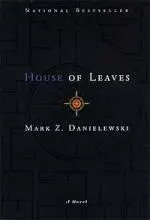 1. House of Leaves by Mark Danielewski
1. House of Leaves by Mark Danielewski
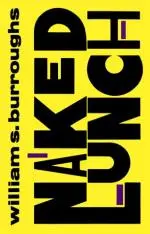 2. Naked Lunch by William Burroughs
2. Naked Lunch by William Burroughs
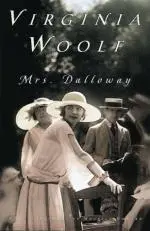 3. Mrs Dalloway by Virginia Woolf
3. Mrs Dalloway by Virginia Woolf
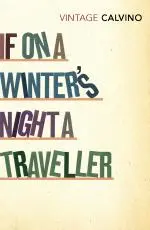 4. If On A Winter’s Night a Traveler by Italo Calvino
4. If On A Winter’s Night a Traveler by Italo Calvino
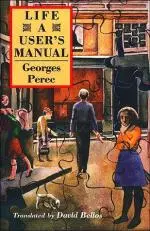 5. Life: A User’s Manual by Georges Perec
5. Life: A User’s Manual by Georges Perec
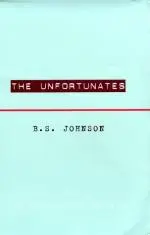 6. The Unfortunates by B.S. Johnson
6. The Unfortunates by B.S. Johnson
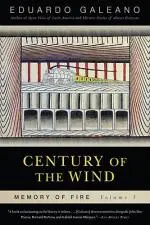 7. Century of the Wind by Eduardo Galeano
7. Century of the Wind by Eduardo Galeano
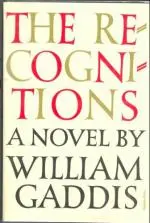 8. The Recognitions by William Gaddis
8. The Recognitions by William Gaddis
 9. Invisible Monsters Remix by Chuck Palahniuk
9. Invisible Monsters Remix by Chuck Palahniuk








